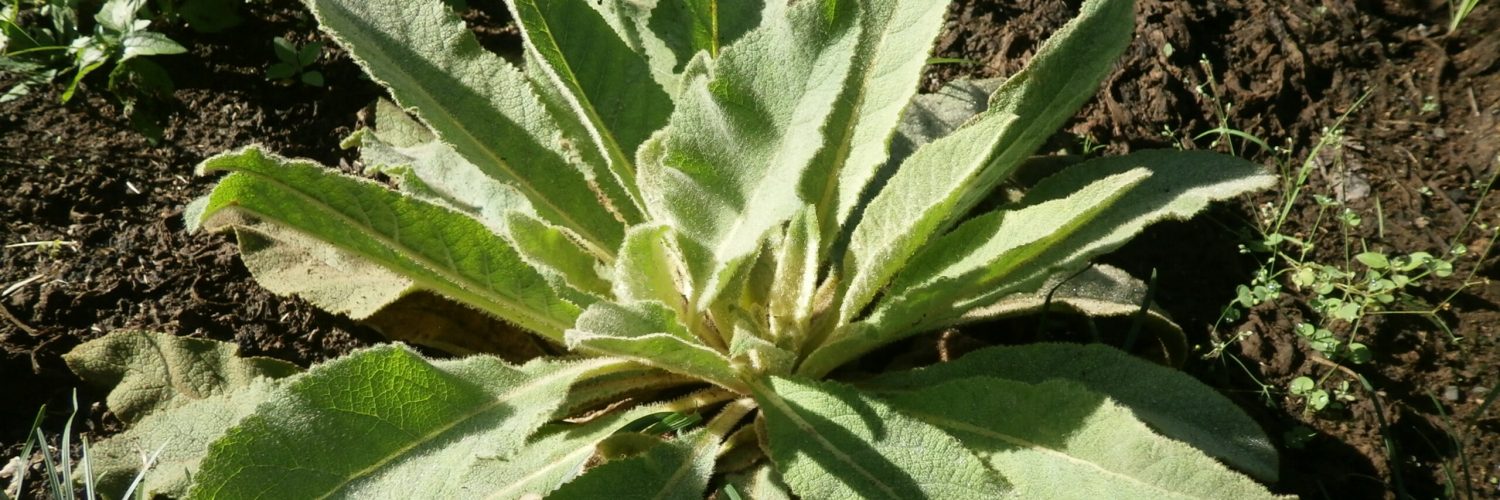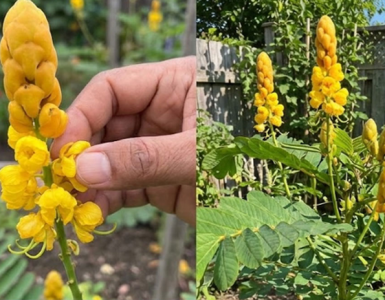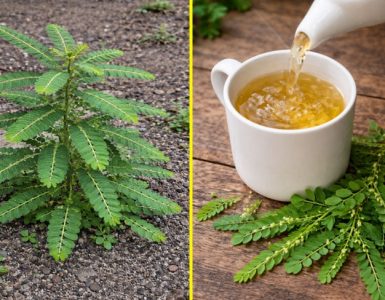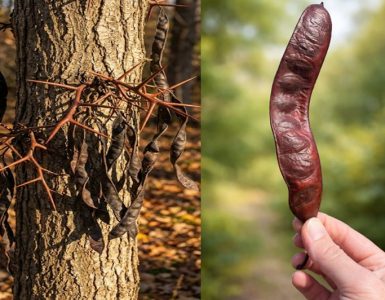The Common Mullein (Verbascum thapsus), also known as Woolly Mullein or Flannel Plant, is a biennial herb native to Europe, Asia, and North Africa. Known for its towering yellow flower spikes and soft, velvety leaves, this resilient plant has a long history of medicinal and practical uses. Let’s explore the numerous benefits and applications of this versatile herb.
1. Medicinal Benefits
Respiratory Health
- Expectorant Properties: Mullein is a well-known remedy for respiratory ailments like coughs, bronchitis, asthma, and chest congestion. Its leaves and flowers help expel mucus from the airways.
- Anti-Inflammatory Effect: It soothes inflamed tissues in the lungs and throat, making it effective against sore throats and dry, hacking coughs.
- How to Use:
- Mullein tea made from the dried leaves or flowers is a popular remedy.
- Mullein tinctures and syrups are also available for more concentrated use.
Ear Health
- Ear Infections: Mullein flower oil is a traditional remedy for treating earaches and ear infections, particularly in children. Its antimicrobial and anti-inflammatory properties help reduce pain and infection.
- How to Use: A few drops of warmed mullein-infused oil can be applied to the affected ear.
Anti-Inflammatory Properties
- Mullein is rich in antioxidants and compounds like verbascoside, which have potent anti-inflammatory effects. It is often used to reduce joint pain, muscle aches, and swelling.
Antiviral and Antibacterial Benefits
- Mullein has demonstrated antiviral and antibacterial properties, helping fight infections like the flu and colds. Its soothing effects also calm irritated mucous membranes.
2. Skin Care and Wound Healing
- Mullein leaves can be applied externally to treat burns, cuts, sores, and bruises.
- Its soothing and astringent properties make it useful for addressing skin conditions like eczema and rashes.
- How to Use: Apply mullein-infused oil or poultices made from fresh or dried leaves directly to the skin.
3. Digestive Health
- Mullein tea has been traditionally used to ease digestive issues such as diarrhea, constipation, and hemorrhoids.
- It helps soothe the gut lining and reduces inflammation in the digestive tract.
4. Pain Relief
- The herb has mild analgesic properties, which can help relieve headaches, joint pain, and other forms of discomfort.
5. Practical and Everyday Uses
- Lamp Wicks: In historical times, the soft leaves and stems of mullein were used as wicks for oil lamps and candles.
- Insulation: The velvety texture of mullein leaves made them a natural insulator for shoes and clothing during cold weather.
- Fire Starting: Dried mullein stalks were often used as torches or fire starters.
6. For Pollinators and the Environment
- Mullein flowers are highly attractive to bees, butterflies, and other pollinators, promoting biodiversity in gardens and wild areas.
- As a hardy plant, mullein can help improve poor soils and prevent soil erosion.
How to Use Common Mullein
Mullein Tea Recipe
- Ingredients: 1-2 teaspoons of dried mullein leaves or flowers, 1 cup of hot water.
- Instructions:
- Steep the herb in hot water for 10-15 minutes.
- Strain carefully to remove the tiny hairs from the leaves, which can irritate the throat.
- Usage: Drink up to 2-3 cups daily for respiratory relief.
Mullein Oil for Earaches
- Ingredients: Fresh or dried mullein flowers, olive oil.
- Instructions:
- Place flowers in a jar and cover with olive oil.
- Let it infuse for 2-4 weeks in a warm, sunny spot.
- Strain the oil and store it in a dropper bottle.
- Usage: Use 2-3 warm drops in the ear to relieve pain and infections.
Precautions
While mullein is generally safe for most people, it’s essential to keep a few precautions in mind:
- Always strain mullein tea thoroughly to remove fine hairs.
- Those with allergies to plants in the Scrophulariaceae family should avoid mullein.
- Consult a healthcare provider before using mullein products, especially for chronic conditions or pregnancy.
Common mullein is a powerhouse of medicinal and practical benefits. Whether used for respiratory health, skin care, or everyday needs, this versatile herb continues to prove its value as a natural remedy. With its gentle yet effective healing properties, mullein deserves a place in every herbal enthusiast’s toolkit.






Add comment